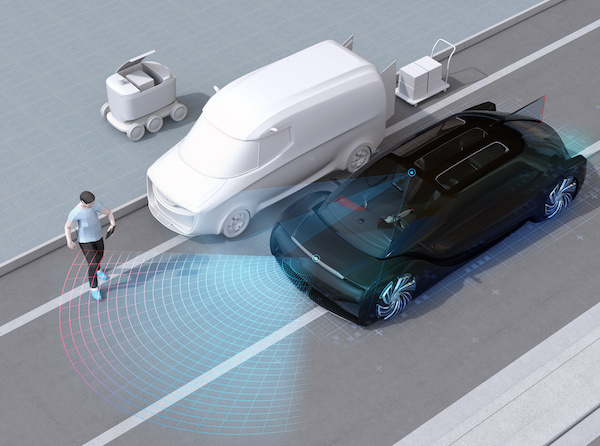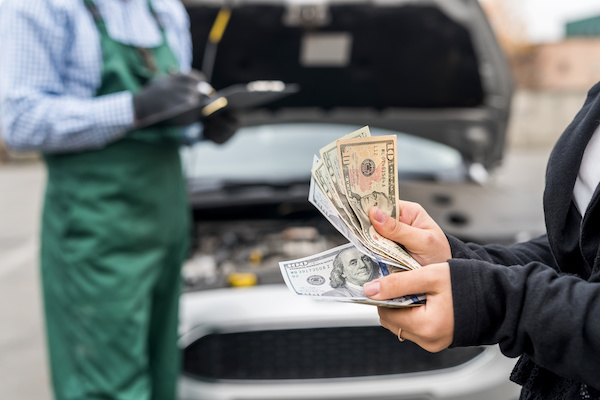Posted on 9/1/2023

How to Improve Fuel Efficiency and Save Money on Gas In today's world of rising fuel prices, improving your vehicle's fuel efficiency helps you save money and reduces your carbon footprint. For us drivers in Bakersfield, where commuting and travel are a part of daily life, implementing simple techniques can significantly enhance fuel efficiency. In this article, we will discuss practical tips to help you optimize your vehicle's fuel consumption, including maintaining proper tire pressure, regular tune-ups, and adopting fuel-efficient driving habits. Keep Tires Properly Inflated Maintaining the correct tire pressure is crucial for maximizing fuel efficiency. Underinflated tires increase rolling resistance, requiring more energy and fuel to propel the vehicle forward. Routinely check your tire pressure using a tire pressure gauge at least once a month. Refer to your vehicle's manual or the sticker inside the driver's door jamb for the recommended pressure levels ... read more
Posted on 8/30/2023

In a world where technology evolves at the speed of light, your car is no exception to the rule. Enter the realm of Advanced Driver Assistance Systems, or ADAS, where innovation meets automotive safety. Buckle up as we take you on a journey through the cutting-edge world of ADAS systems and the intricate art of calibration. ADAS, short for Advanced Driver Assistance Systems, is a collection of safety features and technologies designed to make your driving experience safer and more convenient. These systems use sensors, cameras, radar, and other components to help you avoid collisions, maintain lane control, and even park your vehicle with ease. A Glimpse at ADAS Capabilities: Adaptive Cruise Control (ACC): Keeps a safe distance from the vehicle ahead by adjusting your car's speed. Lane Departure Warning (LDW): Alerts you if your car drifts out of its lane without signaling. Automatic Emergency Braking (AEB): Brakes automatically to prevent or reduce the severity of collisions ... read more
Posted on 8/1/2023

Photo by David Thielen on Unsplash As the owner of Circle M Truck Repair in Bakersfield, CA, I understand the challenges that oil rig companies face in managing their fleets while focusing on their core competencies. With three generations of experience in operations and fleet logistics in the California Central Valley, we launched Circle M Truck Repair in 2012 to specialize in building systems that bring fleets to new levels. This blog will explore the benefits of outsourcing fleet maintenance for oil rig companies and how Circle M Truck Repair can provide the solutions needed to optimize their fleet operations. Expertise and Specialization At Circle M Truck Repair, we take pride in our expertise and fleet management and maintenance specialization. With a team of ASE-Certified Diesel and Truck Mechanics, we bring extensive knowledge and experience. As a Portuguese family ... read more
Posted on 7/30/2023

Proper car maintenance is essential for safety and performance purposes. The annual service is expected, but many repairs and replacements of car parts are abrupt and expensive. The best way to ensure your car's maintenance stays on point is to budget for it. The following are tips on how to budget for car maintenance: Develop An Estimate The first step to creating a budget for car maintenance is to come up with an accurate estimate of how much it takes to maintain your car. Therefore, you should collect all the car's maintenance records for the past year or two. Find out what you spent in total in the past year on car maintenance and divide it by twelve to get the average monthly car maintenance expenses. For example, if you spend $3,000 on car maintenance in the past year, your monthly expenses will be $250. That will be your monthly budget for car maintenance. Evaluate Your Car's Condition You may have a monthly budget, but the state of your car that determines how ... read more
Posted on 7/1/2023

Beat the Heat: Tips for Keeping Your Vehicle Running in Bakersfield, CA's Extreme Temperatures Living in Bakersfield, CA, means experiencing extreme temperatures throughout the year. The hot summer months can be especially tough on your vehicle, causing it to work harder and putting it at risk for breakdowns. To keep your vehicle running smoothly and safely in the heat, follow these tips from Circle M Tire & Automotive: Keep Your Engine Cool Your engine is the heart of your vehicle, and it's crucial to keep it cool in hot temperatures. Make sure your radiator is full of coolant and functioning correctly. You should also check your engine's belts and hoses regularly, as they can crack or break in extreme heat, leading to engine damage or failure. Check Your Battery High temperatures can cause your vehicle's battery to lose power or even fail. Make sure your battery is securely mounted and free of corrosion. You should also have it tested regularly by a qualified ... read more